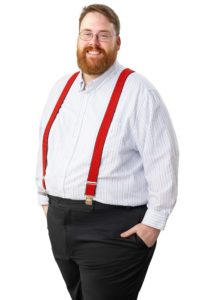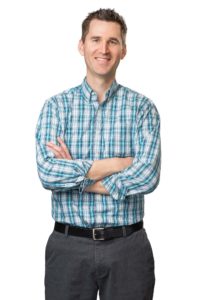Our culture embraces learning and we take pride in our mentoring program; the program’s single goal is to make a young engineer a success in this field. Our process is simple, but well defined. Although our entire team of engineers work side by side with new employees to support and guide them, we take careful consideration to appoint experienced team members who not only have the expertise, but also the desire to mentor.
Meet Schaefer engineers Ross Woods and Matt Horne. Ross started as a design engineer at Schaefer in January after completing his Master of Science in Civil Engineering. Matt is a project manager who has been in the field for 11 years. During his four years at Schaefer, Matt has mentored two new engineers.
Did the mentorship program draw you to Schaefer?
RW: It was definitely something I was looking for while interviewing. I liked the idea that I would have a “go-to” for any questions and that I would not get lost in a crowd of busy engineers.
MH: I feel that the mentorship program is a manifestation of the culture at Schaefer. We help each other succeed. That is what drew me to Schaefer.
What are the basics of any quality mentorship relationship?
RW: Trust and honesty. I trust that Matt is teaching me how to design in a safe, ethical and efficient manner. I trust that I can be honest with Matt about what I do not know or do not remember and he will not make me feel like a failure or disappointment. I know that I can expect honest assessment of my work and that it’s not to give me a hard time, but to make me a better engineer.
MH: An outstanding mentee and mentor of course, just like Ross and me!
What do you find most valuable in your mentorship relationship?
RW: All of the project managers at Schaefer are great at explaining their projects and my role in them. They can readily give me direction and advice on design. What they usually do not have is the time to stop and teach me the history of why we detail something a specific way or how a specific factor of safety evolved over time through different codes. I always know Matt will make the time to walk me through concepts that I do not fully understand until I am comfortable with them.
MH: The opportunity to work with Ross in a broad-based way. Mentoring is more than just a single project or task, it’s about all-around development. We’ll meet to review something and our discussion can go anywhere, which is the best part of the process.
What do you hope to get out of the mentorship relationship?
RW: Strong technical competence, improved confidence, design efficiency, excellent working relationships, and to be pushed out of my comfort zone enough that it expands.
MH: My only hope is for Ross to feel that he has access to the tools and support he needs to be successful.
How do you continue to build your relationship?
RW: We generally have daily check-ins, even when I’m working on projects Matt’s not involved in or I do not have a specific question for him. Matt also continues to introduce new things for me to learn and suggests topics that I can look into myself.
MH: We stay engaged even on projects that Ross is working on with other engineers. It helps maintain a constant dialogue between us.
How does being a mentor/mentee help you every day?
RW: There is consistency in how I am learning. Every project manager has their own way of approaching design. Having a mentor allows for understanding to build in layers; I can get a cohesive design approach from Matt and then expand that concept with my exposure to other project managers’ styles.
MH: Mentoring is a great way to strengthen communication skills, which are critical for successful project management. That said, Ross and I are focusing on many types of non-verbal communication (such as mind-reading), which have streamlined our workflow.
How has the mentorship program led you to succeed in the industry and at Schaefer?
RW: It has given me a lot of confidence in my work and is building a solid foundation for my future.
MH: When I arrived at Schaefer 4 years ago after working on the East Coast for several years, I needed help transitioning to Cincinnati/Schaefer and having my own mentor was a huge help. As engineers, I think we naturally think of mentorship as technical training, but it’s also about acclimating to a new environment and getting to know new people.
Mentoring has helped me hone my leadership skills and has expanded my own knowledge base. If Ross asks me a question that I don’t know the answer to, I make it my goal to become familiar with the topic so that I can discuss it with him.
Mentor-mentee partnerships continue beyond the onboarding process and other mentors can also take over as needed to further develop and support a new mentee. The outcome of our program works to ensure success, but the friendships last a lifetime.


